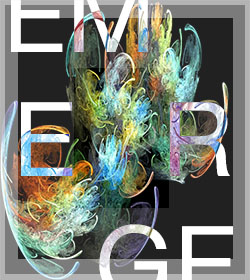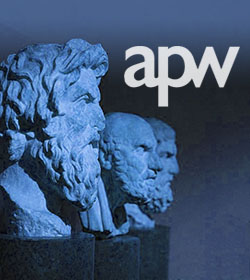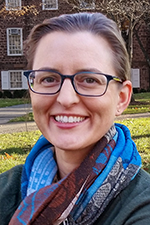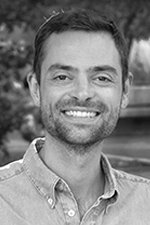Artificial Intelligence: Transcending the Brain?
Dr. Susan Schneider (U Connecticut) We are in the midst of an AI revolution. Artificial intelligence is projected eventually to render us obsolete in the workplace, and even, according to some, eventually outthink us. The age of AI presents philosophers with many issues to mull over: can there truly be conscious AIs? Will there really be human-level …
Expertise: Who Should I Believe?
Thinking for yourself and trusting experts Dinner and discussion with Drs Stewart Duncan & Duncan Purves
Florida Philosophical Association Meeting
63rd annual FPA philosophy conference. Forty-seven philosophers speak on a wide variety of topics. Hosted by College of Central Florida in Ocala.
World Philosophy Day
Join the United Nations in celebrating World Philosophy Day! Established to foster philosophical analysis and raise public awareness of the importance of philosophy and the need for free, critical and responsible philosophical reflection.
Emergence and the Characterization of the Fundamental
Dr. Jessica Wilson (U Toronto) Other things being equal, a characterization of what it is to be fundamental should accommodate the in-principle possibility of strong, metaphysical emergence. In this talk, I'll argue that such accommodation pushes against independence-based characterizations of the fundamental, according to which what it is to be fundamental is to be un-grounded or un-built, and …
Undergraduate Conference on Minorities in Philosophy
This event is hosted by the UF Society of Women in Philosophy.
41st Annual Ancient Philosophy Workshop
Keynote Speaker: Dr. KATJA VOGT (Columbia). This event is sponsored by the UF Dept of Philosophy, the Dept of Classics and the UF Center for the Humanities in the Public Sphere.
SEG: 12th Annual Southeast Graduate Philosophy Conference
Keynote Speaker: Dr. RICHARD BOYD (Cornell). This event is hosted by the UF Graduate Philosophy Society.
Understanding Austin’s Way with Skepticism
Dr. Mark Kaplan (Indiana) J.L. Austin is famous for having written as if what we say while doing epistemology needs to accord faithfully with what we would say in ordinary circumstances. Most would say, "infamous". Not long after Austin's death, there formed a durable consensus that Austin's "ordinary language" approach to epistemological problems was fundamentally misguided …
4th Annual Undergraduate Philosophy Conference
Keynote Speaker: Dr. Shelly Park (UCF) This event is hosted by the UF Undergraduate Philosophy Society
Applying Moral Caution
Dr. Jon Matheson (UNF) This talk will explore an issue concerning the moral status of alternative actions -- a kind of asymmetry of knowledge that sometimes arises...... and has significant ramifications for what it is morally permissible to do. We will see how this issue in fact arises in the cases of vegetarianism, abortion, and charitable …
Ethics and Education in the Age of Accountability
Dr. Jaime Ahlberg (Philosophy, UF) "Disability as Difference: Implications for Educational Justice" Elizabeth Currin (Education, UF) "Storied Stance: An Oral History of Long-Term Teacher Researchers in the Age of Accountability" This event is hosted and sponsored by the UF Center for the Humanities and the Public Sphere.
What Was Kant’s Critical Philosophy Critical Of?
Dr. Catherine Wilson (CUNY Graduate Center/Univ of York) Immanuel Kant is universally regarded as a philosopher of freedom in both pure and applied moral philosophy. His 'critical philosophy' is often said to have reconciled human freedom with Newtonian science. It is also believed to articulate a sharp moral distinction between persons — who ought not be used …
Florida Philosophical Association Conference
The 64th annual meeting of the FPA takes place November 2nd & 3rd in Pensacola, FL. Two days, forty philosophy talks. This event is hosted by Pensacola State College and sponsored by the Florida Philosophical Association.
Social Media: NETWORKING OR NOT WORKING?
23rd Annual Food & Talk event! Join us for food and discussion on a topic of broad philosophical interest. Professors Rodrigo Borges and Amber Ross will open the discussion with remarks on one of the most life-changing and fraught technologies of our time. Food & Talk is sponsored by the Department of Philosophy and devoted to our undergraduate …
World Philosophy Day
The United Nations celebrates the 'enduring value of philosophy for the development of human thought'. "UNESCO leads World Philosophy Day – but does not own it. It belongs to everyone, everywhere, who cares about philosophy."
We Need Non-Factive Metaphysical Explanation
Dr. Mike Bertrand (Auburn) I argue that metaphysicians need a non-factive notion of potential metaphysical explanation in order to make sense of explanationist arguments, arguments in which a view is motivated by its superior ability to explain. I offer an account of non-factive metaphysical explanation drawing on existing applications of structural equation models to metaphysical grounding.
How to Get Certain Knowledge from Fallible Justification
Dr. Peter Klein (Rutgers) Sometimes fallible justification can yield certain knowledge. This talk aims to show that one sort of view about knowledge (defeasible infinitism)...... is able to explain this phenomenon whereas various other epistemic theories cannot. We will spend some time getting clear on what makes a belief certain and what makes a justification fallible.
Promise and Problems in Emerging Technology
Shaping the Societal Impact of Artificial Intelligence Machine learning and artificial intelligence have emerged as an indispensable tool in virtually every major institution. But each application of artificial intelligence carries with it distinct opportunities and challenges. Promise and Problems in Emerging Technology seeks to address these challenges by bringing together international and regional experts investigating …
Southeast Graduate Student Conference
Keynote Speaker: Dr. Chris Heathwood (U Colorado) 13th Annual Southeast Graduate Philosophy Conference. SEGPC is a national philosophy conference organized annually by the Graduate Student Philosophy Society of the University of Florida.
5th Annual Undergraduate Philosophy Conference
Keynote Speaker: Dr. Andrea Westlund (FSU) This event is hosted by the UF Undergraduate Philosophy Society. Free and open to the public.
Big Data Policing
Dr. Duncan Purves (UF) I am interested in the way that the promise of greater efficiency from AI-assisted decision-making can distract our attention away from pertinent ethical concerns like fairness and discrimination. There is a great deal of focus on the fact that the tech “works,” and diminished concern for whether it works in a way …
Philosophy and Habit Workshop
Two days and ten speakers on the matter of habit. Free and open to the public.


















